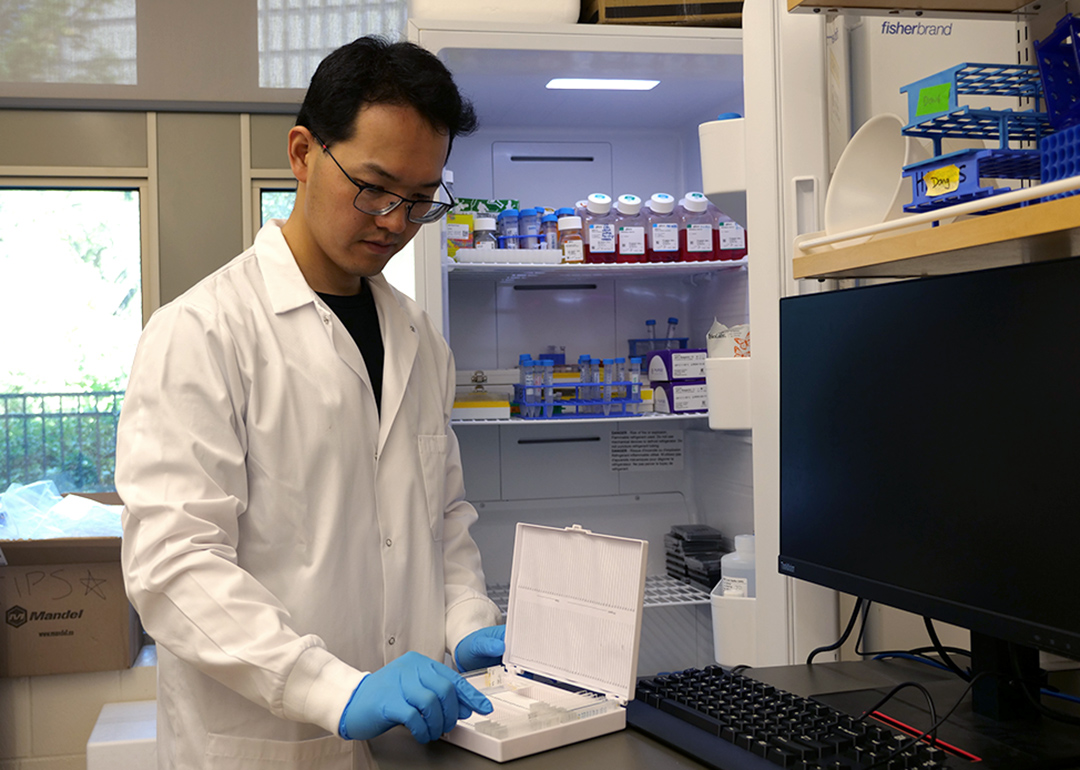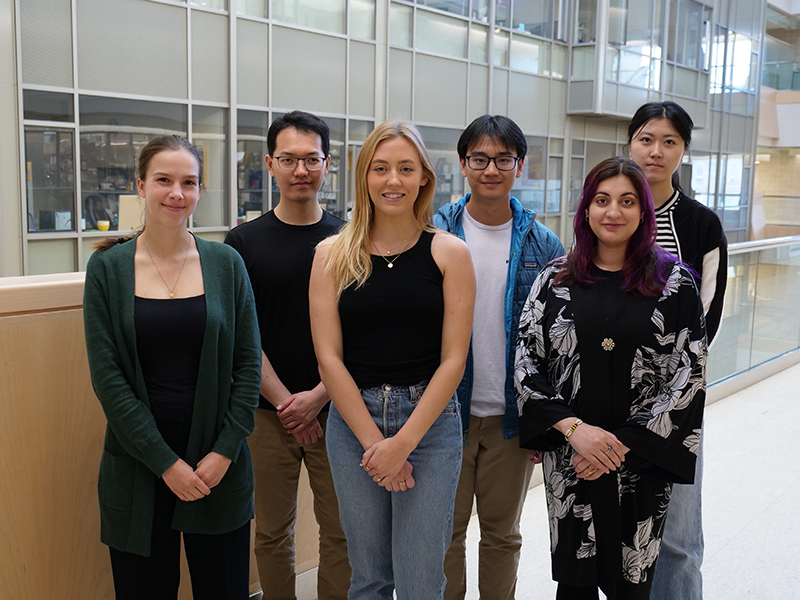
New USask research into aging-related cell damage receives CIHR funding
Everybody ages – but new research at the University of Saskatchewan (USask) is exploring both how aging damages cells and how that aging might be countered.
By Matt Olson, Research Profile and Impact
Dr. Jeff Dong (PhD), an assistant professor in the Department of Biochemistry, Microbiology and Immunology in USask’s College of Medicine, is exploring the mechanisms behind how cells in the brain and nervous system are damaged by age – leading to the formation of chronic lesions in the brain or the spine that are part of multiple sclerosis (MS).
By better understanding that mechanism, Dong believes his group can learn ways to better address progressive MS, which is the type of MS that becomes increasingly debilitating with age.
“One of the main challenges in trying to treat or even cure progressive MS is we don’t really understand the mechanisms that drive the damage caused to your brain or spinal cord during disease progression, and how this is impacted by aging,” he said.
The project recently received more than $1 million from the Canadian Institutes of Health Research (CIHR) Project Grant program. It is one of five projects from College of Medicine researchers that were awarded funding through the CIHR Spring Project Grant competition.
As Dong describes it, inflammation and aging expose lipids in the brain and spinal cord to “oxidative stress,” which creates oxidized lipids. In particular, oxidized phospholipids are key players in inflammation and the destruction of cells which can contribute to symptoms of progressive MS.
And because the accumulation of oxidized phospholipids in the nervous system doesn’t appear to repair on its own, investigating how that damage occurs and how they might be able to directly treat those lipids could help those suffering from progressive MS and other neurodegenerative diseases.
“We want to understand how different cells in the central nervous system respond to chronic injury mediated by oxidized phospholipids and, in the context of aging, we want to determine if there are ways we can help remove or neutralize these toxic lipids,” Dong said.
Using state-of-the-art single nuclei RNA sequencing, Dong and his team can get an extremely detailed picture of how individual cells are reacting to the oxidized phospholipids in the context of the aging brain and spinal cord.
Through this approach the researchers can identify if an individual nerve or brain cell has any “survival mechanisms” for dealing with – or attempting to deal with – that damage.
“It’s giving us unprecedented resolution of cellular responses, and we hope that we can use this to help us understand the mechanisms that underlie some of these oxidative stress and aging-related cellular injuries,” Dong said.
Beyond his own research into this specific area, Dong said the funding from CIHR will help support the training and growth of new scientists to investigate the specific causes and effects of aging and neurodegenerative diseases. As the aging population continues to grow, so must the population of those looking to help.
“We are an aging society, so the issue of neurodegenerative diseases and other aging-associated diseases is going to be increasingly problematic,” Dong said. “Being able to understand what’s happening, and the opportunity to make a difference, is something that motivates what we do every day in the lab.”
College of Medicine researchers who received CIHR funding from the 2024 Spring Grant Competition and their projects:
- Dr. Linda Chelico (PhD) – Department of Biochemistry, Microbiology and Immunology, $100,000 for one-year project, Role of APOBEC3 single-stranded DNA cytosine deaminases in breast cancer
- Dr. Linda Chelico (PhD) – Department of Biochemistry, Microbiology and Immunology, $100,000 for one-year project, The on-going conflict between APOBEC3 immune factors and HIV vif
- Dr. Jeff Dong (PhD) et al. – Department of Biochemistry, Microbiology and Immunology, $1,093,950 for five-year project, Understanding oxidized phosphatidylcholines as novel mediators of chronic neurodegeneration and progressive multiple sclerosis
- Dr. Ron Geyer (PhD) et al.– Department of Lab Medicine and Pathology, $719,100 for five-year project, A theranostic probe targeting the tumor-associated xenoantigen N-Glycoylneuramic acid GM3 ganglioside (Neu5Gc GM3)
- Dr. John Howland (PhD) et al.– Department of Anatomy, Physiology and Pharmacology, $960,076 for five-year project, Cannabinoid-dependent effects of gestational Cannabis smoke exposure on behaviour and neurophysiology: implications for long-term offspring development
